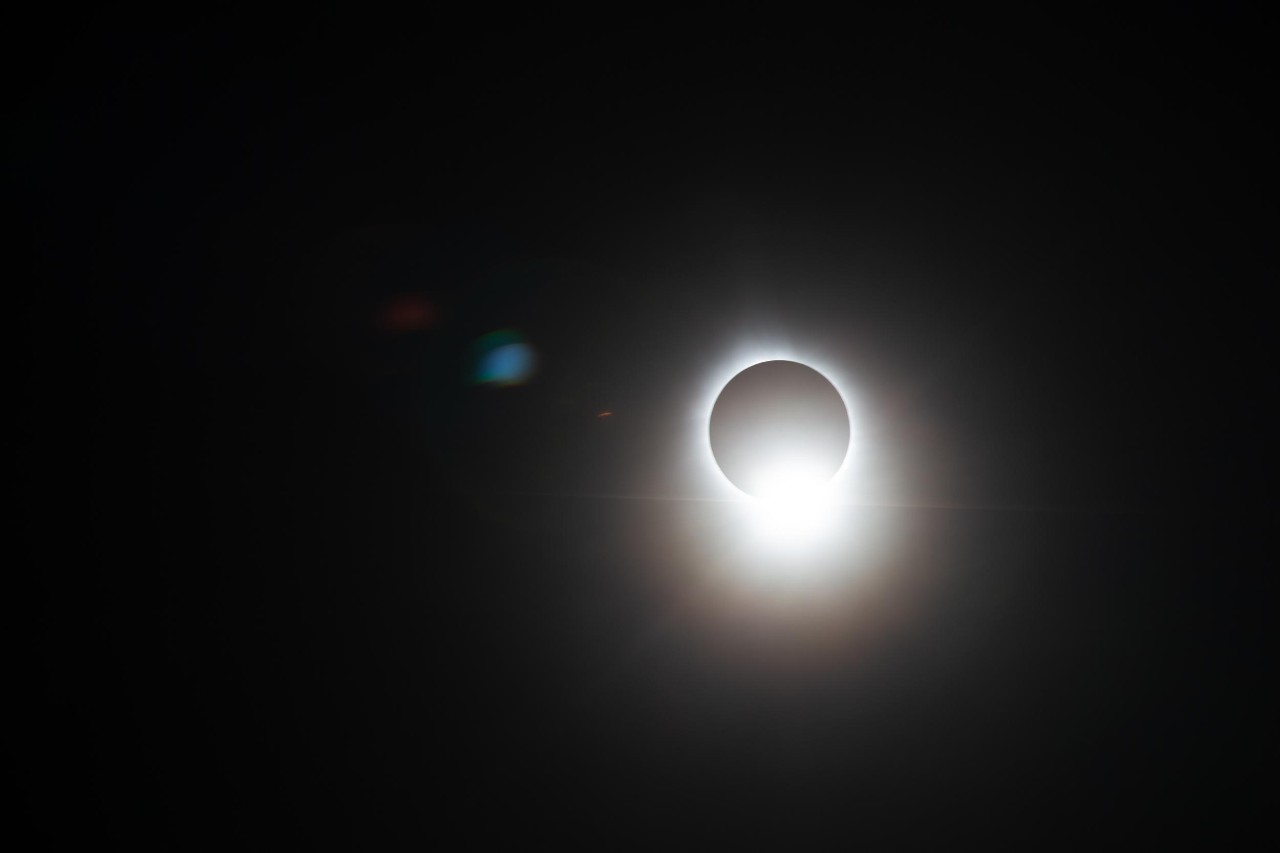
UC Physics hits road to witness solar eclipse
The spectacle lived up to the hype for UC students and faculty
SHELBYVILLE, Ind. — Parking at Blue River Memorial Park was already scarce Monday morning when members of the Physics Department pulled into the lot about 80 miles west of the University of Cincinnati.
Families from as far away as Alabama and Florida traveled to this sprawling mix of playgrounds and ballfields because of the stellar significance of its geography. It sat in the heart of totality for the solar eclipse, promising visitors 4 minutes of complete darkness as the moon crossed in front of the sun.
A dozen UC students and faculty set up blankets, telescopes and beach chairs in the grass behind a playground. The park had a carnival atmosphere as people played with soccer balls and Frisbees and lawn games like cornhole. But the bright sun overhead in the clear, blue skies was never far from the conversation.
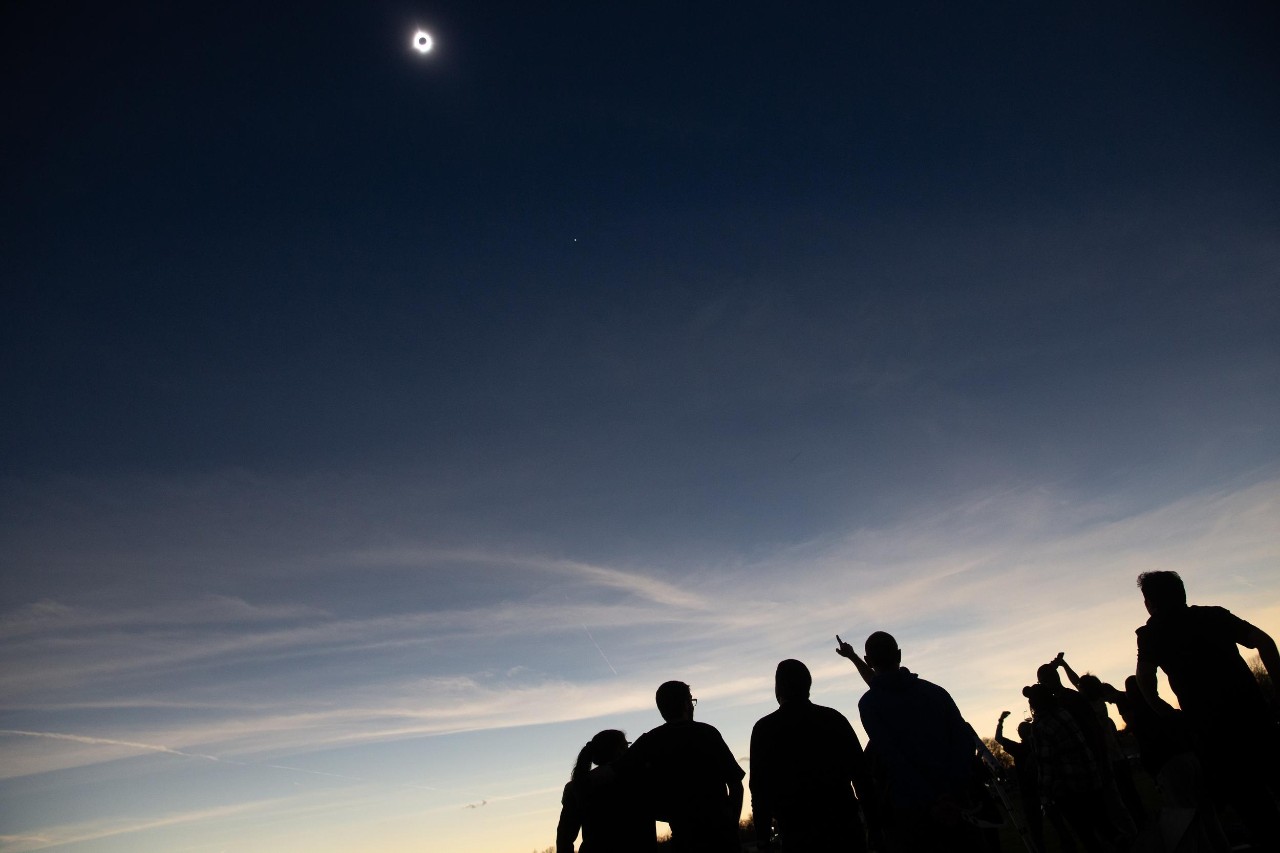
UC physics students and faculty peer up at the total eclipse of the sun that darkened the skies above Indiana. Photo/Andrew Higley/UC Marketing + Brand
““The sun is almost exactly 400 times larger in diameter than the moon. And today the sun is 416 times farther away from us than the moon. Because it’s that farther away, the apparent size of the moon is about 4% larger than the sun,” Associate Professor Alexandre Sousa said. “And that’s why we’ll see a longer totality than in 2017, when the apparent size of the moon was only 2% larger than the sun's.”
He draped the vibrant green and red flag of his native Portugal across a chair to use as a reference marker to observe the Purkinje effect. This is the low-light transition when our eyes switch from using cones to rods for color vision to rods.
“The brain has no time to adapt to night vision so it gets confused and interprets colors in a different way,” he said. “It varies from person to person, but the reds become more muted and the greens pop out.”
He and UC Professor Philip Argyres and Associate Professor Alexandru Maries organized the field trip to give students the rare chance to witness the phenomenon. The next total solar eclipse in the United States won’t occur until 2044.

A total solar eclipse wowed students and faculty in UC's Physics Department who gathered at Blue River Memorial Park in Indiana. Photo/Andrew Higley/UC Marketing + Brand
Back on UC's Uptown campus, students gathered on Bearcats Commons to watch the partial eclipse in an event sponsored by UC Campus Services Marketing. Students likewise gathered outside at UC Blue Ash.
Without fanfare, the moon began its transit, chewing a bite out of the sun like a cookie. Students used two aluminum kitchen colanders like pinhole cameras to cast dozens of eclipse shadows onto a white poster board on the ground.
“You can feel it’s getting colder,” Sousa said. “And because it’s colder in the shadow of the moon, there’s a thermal gradient that causes this wind.”
The dimming sun cast an eerie, alien light on spectators. The green grass looked more blue.
As the sky darkened, a vocal eastern meadowlark noticeably stopped singing in a nearby shortgrass prairie. All eyes turned to the sky in anticipation of the “diamond ring” effect as the moon consumed the last bit of the sun’s direct light.
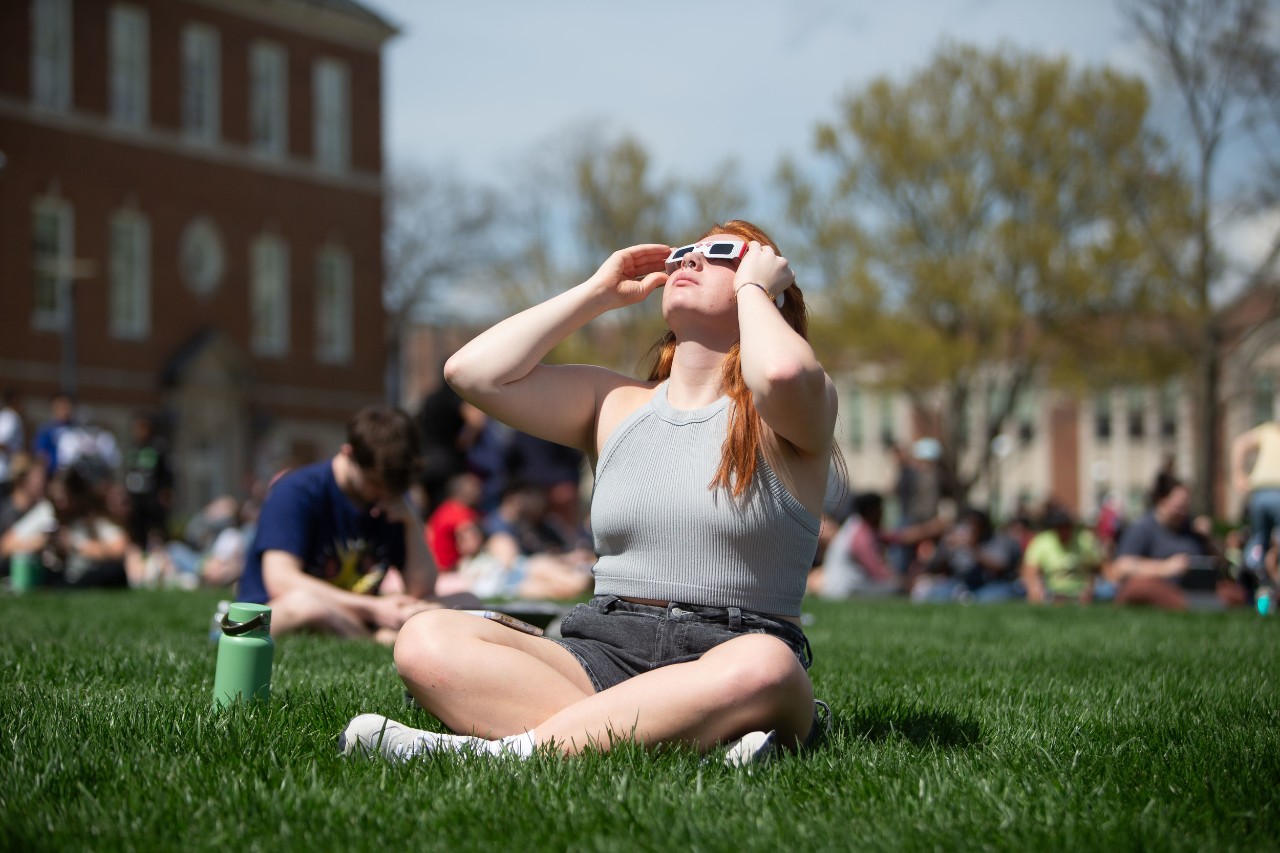
UC students gather on Bearcats Commons to watch the solar eclipse. Photo/Abby Hardesty/UC Marketing + Brand
And just like that, the park was shrouded in darkness. But it wasn’t completely dark. The sun’s bright corona fired into the atmosphere beyond the fringes of the moon, casting shadows on the ground.
Sousa pointed to stars and the planets Jupiter and Venus that suddenly appeared in the daytime sky.
“Wow, this is amazing!” UC postdoctoral researcher Manuel Szewc said.
He and his partner, Maria Vercesi, were looking forward to seeing the eclipse all year.
All too soon, the sun peeked out the other side of the moon in all of its brilliant fury and the eclipse was over. But members of UC’s field trip said it lived up to the hype.
“You have the solar flares and the ‘diamond ring’ and seeing the corona of the sun, which is typically hidden from us, and the emissions of plasma — it’s really incredible,” Szewc said.
“It was mesmerizing. You forget about the science and you’re just in the moment,” Vercesi said. “It was beautiful.”
Featured image at top: A total solar eclipse darkens the skies above Indiana. Photo/Andrew Higley/UC Marketing + Brand
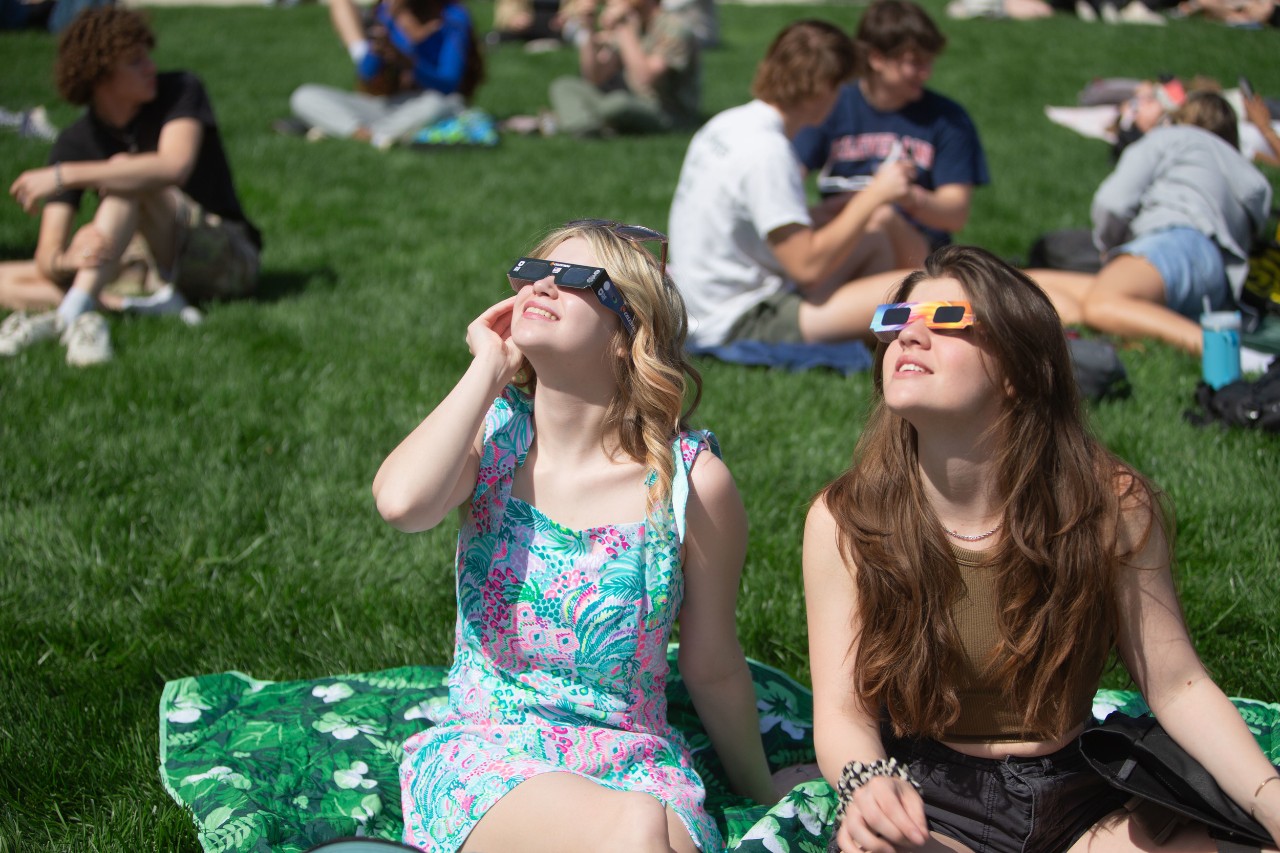
UC Student Affairs hosted an eclipse party on Bearcats Commons. Photo/Abby Hardesty/UC Marketing + Brand
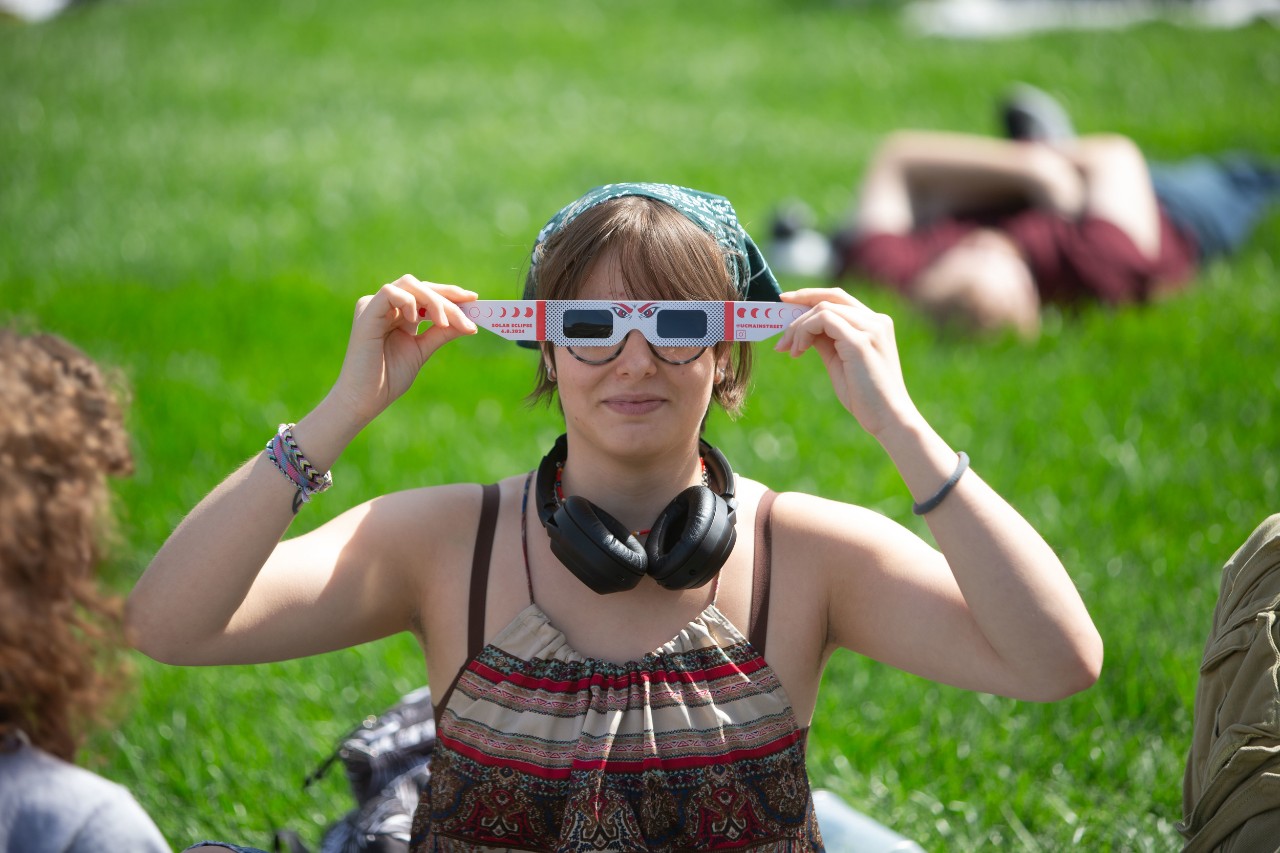
A UC student dons a pair of protective eclipse glasses on Bearcats Commons. Photo/Abby Hardesty/UC Marketing + Brand
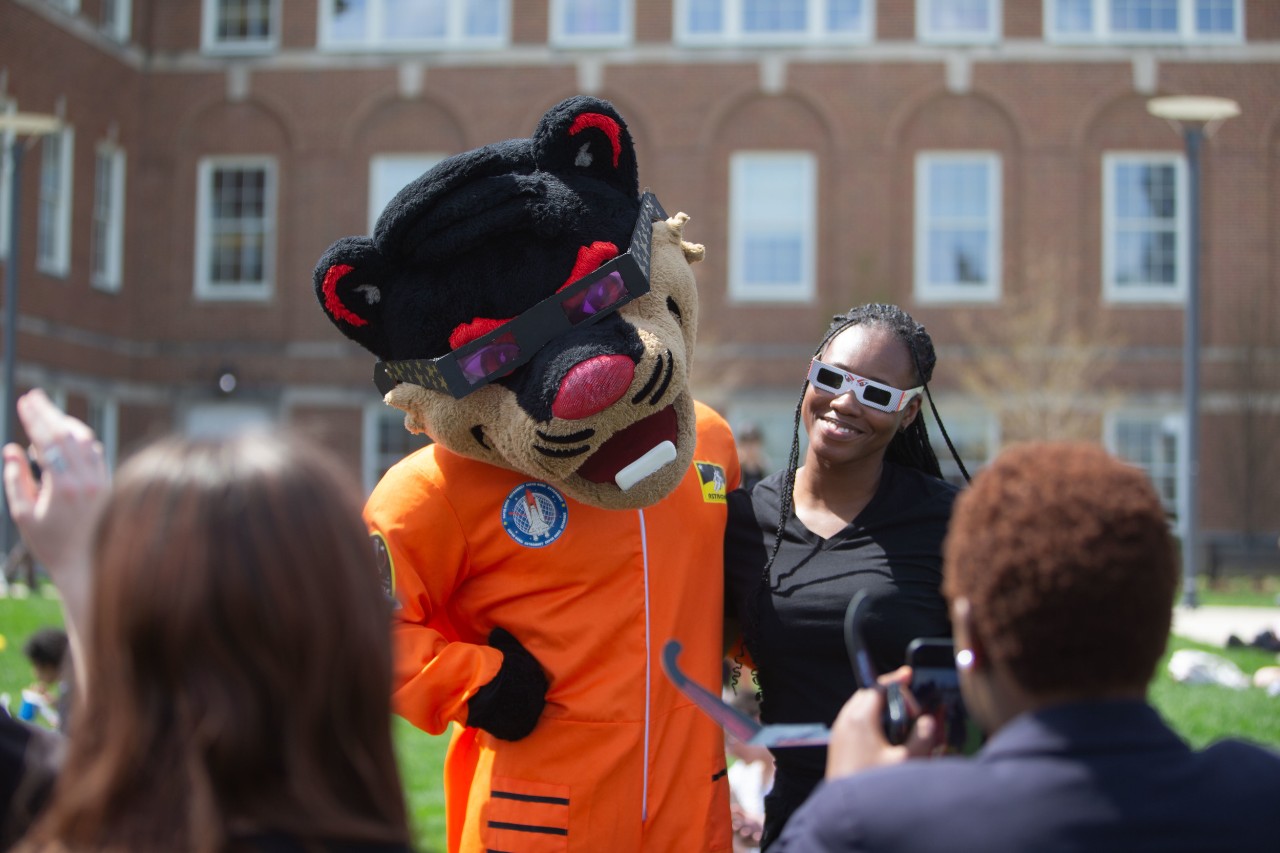
Did you know the UC Bearcat was an astronaut? He dressed for the occasion to join students for an eclipse party on Bearcats Commons. Photo/Abby Hardesty/UC Marketing + Brand
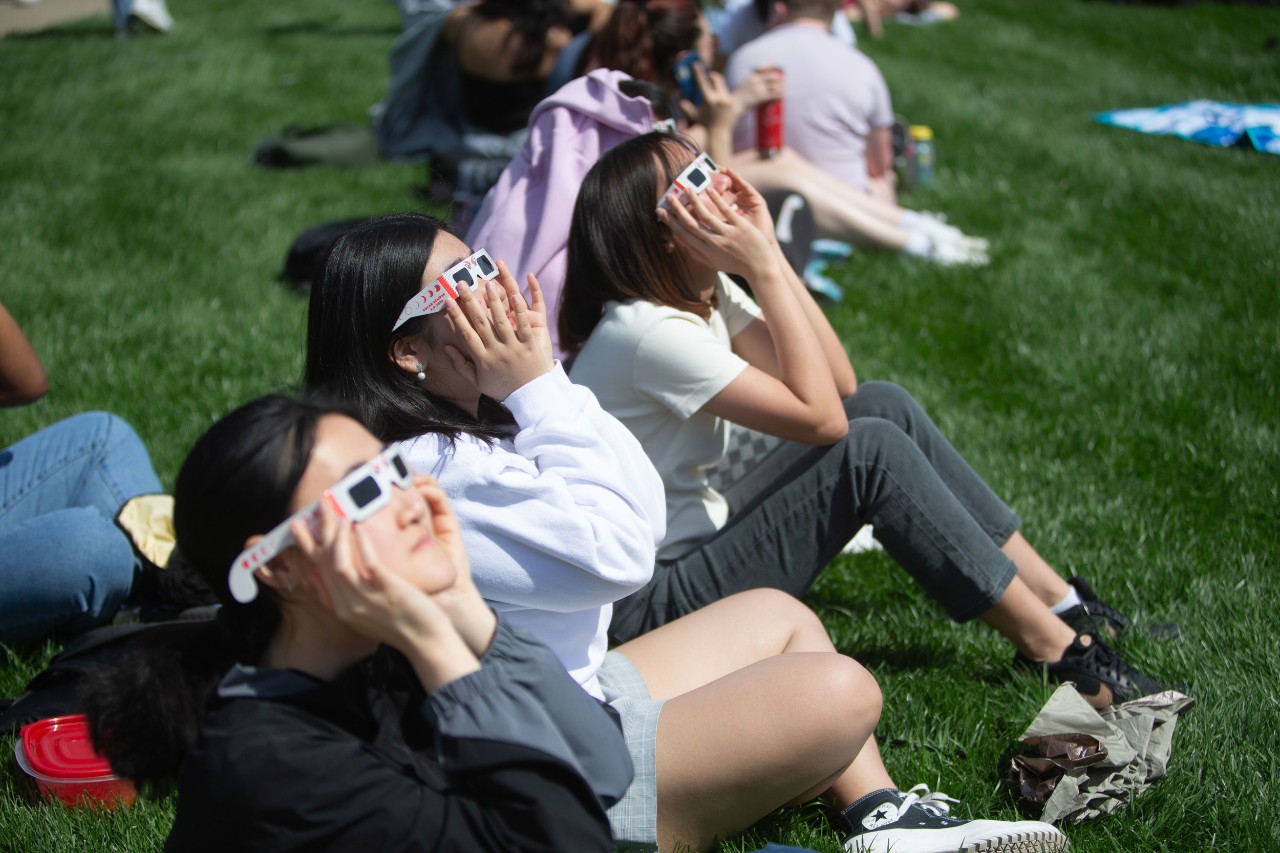
UC students gather on Bearcats Commons to watch the eclipse. Photo/Abby Hardesty/UC Marketing + Brand
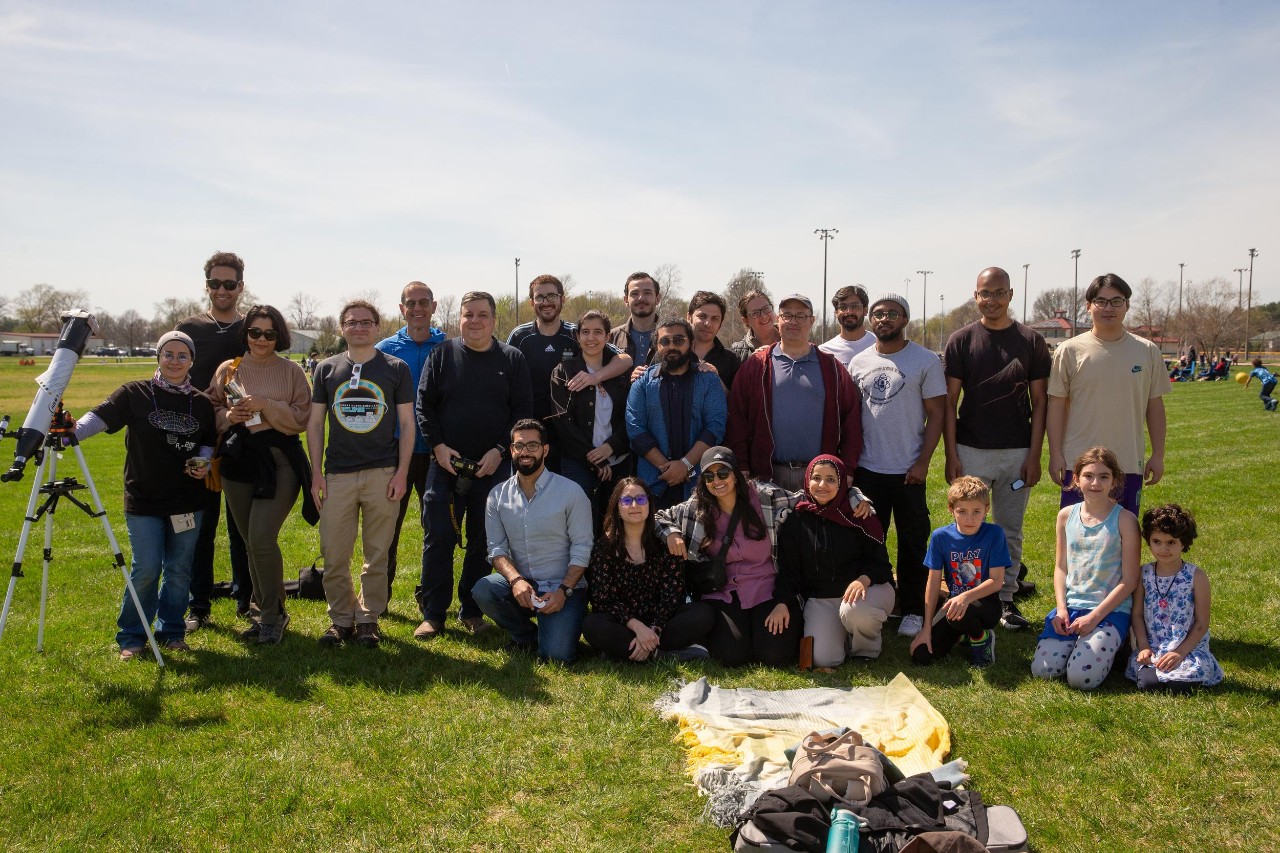
Members of UC's Department of Physics pose for a photo under an eclipse-darkened sky at a park in Shelbyville, Indiana, where they witnessed totality. Photo/Andrew Higley/UC Marketing + Brand
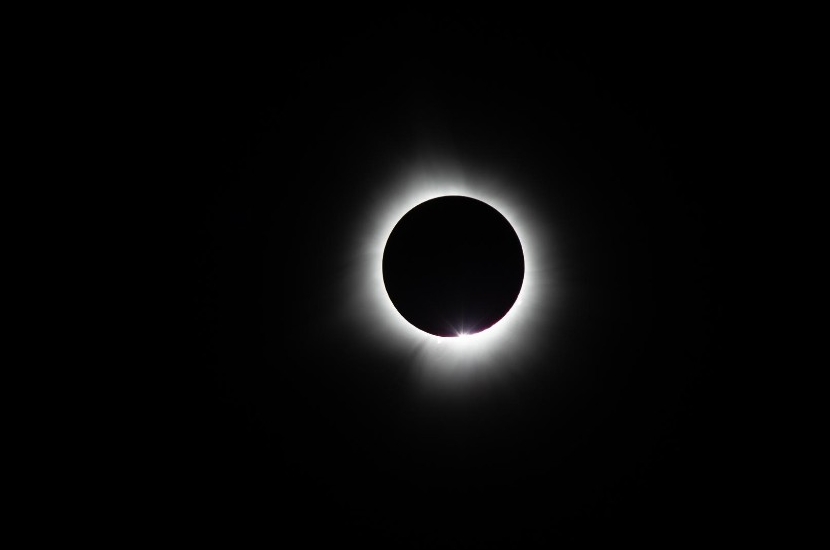
A total solar eclipse darkens the skies above Indiana. Photo/Andrew Higley/UC Marketing + Brand
Become a Bearcat
Whether you’re a first-generation student or from a family of Bearcats, UC is proud to support you at every step along your journey. We want to make sure you succeed — and feel right at home.
Related Stories
Mural by UC grad honors U.S. military history
July 17, 2024
Local 12 highlighted a new mural by University of Cincinnati graduate and artist Brandon Hawkins that pays tribute to U.S. military history.
Social media fuels extreme political rhetoric
July 17, 2024
UC College of Arts and Sciences Professor Jeffrey Blevins tells Local 12 that online algorithms fuel political polarization on social media.
We love ‘Lucy’ — the AI avatar redefining UC tech transfer
July 17, 2024
In a visionary leap at the University of Cincinnati, the marriage of artificial intelligence and interactive technology has birthed "Lucy," a Smarthelp AI avatar poised to revolutionize how regional industries engage with UC's tech transfer initiatives.
NIS program opens new horizons for international student
July 17, 2024
In his pursuit of physics and a taste for research, Akash Khanikor ventured from his hometown in India's Assam to the University of Cincinnati, drawn by the promise of hands-on exploration early in his undergraduate career as a NEXT Innovation Scholar.
Camp aims to empower children, teens who stutter
July 17, 2024
A one-week, evidence-based program for children and teens who stutter at the University of Cincinnati will teach kids to communicate effectively, advocate for themselves and develop confidence about their communication abilities. Camp Dream. Speak. Live., which is coming to Cincinnati for the first time July 22-26, began in 2014 at the University of Texas at Austin. The Arthur M. Blank Center for Stuttering Education and Research at UT expects to serve more than 2,000 children at camps across the United States, Africa, Asia and Europe this year.
UC archivist explores Troy’s invisible workers
July 17, 2024
UC Classics archivist Jeff Kramer examined the unheralded and largely uncredited role laborers played in the 1930s excavation at Troy in Turkey.
From intern to full-time: Recent Lighting Design grad joins Bandit Lites
July 16, 2024
Lighting & Sound America spotlights recent graduate Riley Rowan's new position at Bandit Lites, a full-service design, management and producer of live events and entertainment.
U.S. stroke survival is improving, but race still plays role
July 16, 2024
U.S. News & World Report, HealthDay and Real Health covered new research from the University of Cincinnati that found overall rates of long-term survival following stroke are improving, but Black individuals experience worse long-term outcomes compared to white individuals.
Collaborative pianist and vocal coach Kirill Kuzmin joins CCM’s faculty
July 16, 2024
UC College-Conservatory of Music Interim Dean Jonathan Kregor has announced the addition of Kirill Kuzmin to the college’s faculty of distinguished performing and media arts experts, researchers and educators. A Grammy-nominated collaborative pianist and vocal coach, Kuzmin begins his new role as Associate Professor of Opera/Vocal Coaching on Aug. 15, 2024.
My incredible first year at Cincinnati Law: Journey, reflections and highlights
July 16, 2024
Dean Haider Ala Hamoudi gives a progress report on his first year as dean of the College of Law.
